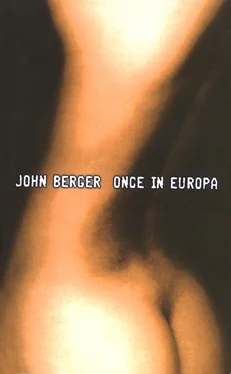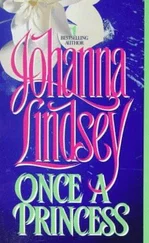John Berger - Once in Europa
Здесь есть возможность читать онлайн «John Berger - Once in Europa» весь текст электронной книги совершенно бесплатно (целиком полную версию без сокращений). В некоторых случаях можно слушать аудио, скачать через торрент в формате fb2 и присутствует краткое содержание. Год выпуска: 2014, Издательство: Bloomsbury Publishing, Жанр: Современная проза, на английском языке. Описание произведения, (предисловие) а так же отзывы посетителей доступны на портале библиотеки ЛибКат.
- Название:Once in Europa
- Автор:
- Издательство:Bloomsbury Publishing
- Жанр:
- Год:2014
- ISBN:нет данных
- Рейтинг книги:3 / 5. Голосов: 1
-
Избранное:Добавить в избранное
- Отзывы:
-
Ваша оценка:
- 60
- 1
- 2
- 3
- 4
- 5
Once in Europa: краткое содержание, описание и аннотация
Предлагаем к чтению аннотацию, описание, краткое содержание или предисловие (зависит от того, что написал сам автор книги «Once in Europa»). Если вы не нашли необходимую информацию о книге — напишите в комментариях, мы постараемся отыскать её.
Once in Europa — читать онлайн бесплатно полную книгу (весь текст) целиком
Ниже представлен текст книги, разбитый по страницам. Система сохранения места последней прочитанной страницы, позволяет с удобством читать онлайн бесплатно книгу «Once in Europa», без необходимости каждый раз заново искать на чём Вы остановились. Поставьте закладку, и сможете в любой момент перейти на страницу, на которой закончили чтение.
Интервал:
Закладка:
How would you like a white suit like the ship’s captain?
Look at those insects!
Where?
There!
She’s been drinking!
He must change it every day.
Look! Along the water line.
Good God, yes, thousands of them.
They come up for the sun.
They’re crabs.
I’ve never seen crabs that size.
You don’t know what to look at.
I tell you, it looks like a flood.
You couldn’t make cheese here!
They disembarked at the Piazza San Marco and climbed the circular staircase of the Campanile. Afterwards the men were thirsty and insisted upon having a drink in one of the cafés on the piazza, which Napoleon called the largest ballroom in Europe.
It costs more to piss here than to drink a whole case at home!
Inside the café he noticed a poster announcing a festival organised by L’Unità , the Communist daily newspaper. Why not?
They crossed the Bridge of Sighs and stopped beneath a statue of Eve in the courtyard of the Doge’s Palace.
It’s a wife like that you need!
Later the men climbed onto the terrace of the Cathedral of San Marco to look at the horses.
The festival was to be held on the island of Giudecca. From the Doge’s Palace he could see the coloured lights decorating the buildings across the water and from time to time he heard a strain of music.
If you’re not at the bus station by two, we’ll know they drowned you.
He’s more adventurous than the rest of you men!
He sat in the stern of the vaporetto with his instrument case on his knees.
You’re not from here.
These words were addressed to him by a young woman with magenta lipstick and white sandals.
How is that?
You look too quiet.
You know what I have in this box?
She shook her head. She had glasses and her black hair was drawn back in a chignon.
A trombone.
It’s not true, she cried. Play it! Please, play something.
Not here on the boat, he said. Are you going to the festival?
If you brought it with you, you must have had the idea of playing it.
We came from the mountains. I didn’t want to leave it in the bus.
Around her neck was a white necklace.
You, do you live down here?
In Mestri, across the bay, where the oil tanks are. And you — I’d say you work on a farm.
How do you know?
I can smell the cows.
If she had been a man, he would have hit her.
What do you think I smell of?
Scent.
Correct. I work in a chemist’s shop.
One look at your hands told me you didn’t work with them.
Do you know what my father calls that?
No.
Infantile proletarianism.
He said nothing. Perhaps it was a Venetian expression.
The vaporetto was approaching the island. Hung from the first-storey windows on the far side of the piazza were banderolas with slogans printed on them. He could make out the hammer and sickle. As he stepped ashore, he held his instrument case tightly under his arm. The festival, he reminded himself, was organised by the Communist Party, but this did not mean there were no thieves there. He could spot them already.
Do you like dancing? she asked.
I can’t dance carrying this.
Give it to me.
She disappeared with his instrument case into one of the nearby buildings.
And if it’s stolen? he said, when she came back empty-handed.
Comrade, she replied, this is a workers’ festival, and workers do not steal from one another.
Peasants do! he said.
What is your name?
Bruno. And yours?
Marietta.
He held up his arm for her to take his hand. He did not dance like a man from here, she thought. He was more single-minded, as if, when dancing, he put everything else out of his mind.
What is it like on your mountain?
There are rhodos and wild goats.
Rhodos?
Little bushes of flowers.
Pink?
Blood-red.
How do they vote in your village?
For the right.
And you?
I vote for anyone who promises to raise the price of milk.
That isn’t good for the workers.
Milk is all we have to sell.
They were dancing round a plane tree in a corner of the piazza. In the tree was a loudspeaker, perched like an owl on one of the branches.
You came here alone? she asked.
With the whole band.
A band of friends?
The brass band of the village.
The next time the owl fell silent he proposed that they should have a drink. She guided him to a table beneath a gigantic portrait, drawn on a sheet and hung from the top windows of a house. The painted face was so large that even the flanks of the nose had been drawn with a six-inch housepainter’s brush. They looked up at it together.
Do you live alone? she asked.
Yes, I’ve lived alone for eight years. A fifth of my life.
She liked the way he hesitated before speaking, it was very deliberate, as if each time he answered one of her questions, he came to the door of a house, opened it to a visitor, and then spoke.
How many mirrors do you have at home? She asked this as if it were a schoolgirl’s riddle.
He paused to count.
One over the sink, one over the drinking trough outside.
She laughed. He poured out more white wine.
That’s Karl Marx, isn’t it? He nodded up at the sheet.
Marx was a great prophet. What do you see in the future? she asked.
The rich getting richer.
I mean your future.
Mine? Everything depends upon my health.
You don’t look sick to me.
If you’re sent to hospital when you are sick, your dog doesn’t look after your cows. I live alone.
She raised her glass to his. I think I could find you work in Mestri.
He was looking at her small feet, thinking: everything between a man and a woman is a question of how much you give up of one thing to have another — an exchange.
You are bound to be influenced by the property relations of which you are a part. Her voice was tender, as if she were explaining something intimate. The Kulaks sided with the bourgeoisie, and the little peasants with the petit bourgeoisie. You are wrong to think only about the price of milk.
She comes, he told himself, from this place of water and islands where there is no earth at all.
The fact is peasants will disappear, she continued, the future lies elsewhere.
I’d like to have children, he said.
You have to find a wife.
He poured out more wine.
You’d find a wife if you moved here.
I’d cut off my right hand rather than work in a factory.
All the men dancing there, she said, they’re nearly all factory workers.
He had never seen so many men in white shirts. They wore their shirts tied round their waists to show off their stomachs. They were as cunning as weasels. Their cuffs were rolled back only halfway up their forearms, as if they had just got out of bed.
Do they caress well? he asked.
Who?
The weasels over there.
Caress?
What a man should do to a woman.
Let’s dance, she said.
The owl was hooting a tango.
Who’s milking the cows tonight? she whispered.
Who am I dancing with?
Marietta is dancing with Bruno, she said, as he pulled her hand up and looked along their arms — as if taking aim with a gun.
As the tempo increased they advanced and turned more and more quickly. People began to watch them. His shirt and his heavy shoes announced he was from the country. But he danced well, they made a couple. Some of the bystanders began to clap in time with the music. It was like watching a duel — a duel between the paving stones and their four feet. How long would they keep it up?
Now they were walking down a narrow street, with old men on wicker chairs, and grandmothers playing with balloons to amuse their grandchildren. At the end of the street was suspended another gigantic portrait: a great domed head, like a beehive of thought, wearing glasses.
Читать дальшеИнтервал:
Закладка:
Похожие книги на «Once in Europa»
Представляем Вашему вниманию похожие книги на «Once in Europa» списком для выбора. Мы отобрали схожую по названию и смыслу литературу в надежде предоставить читателям больше вариантов отыскать новые, интересные, ещё непрочитанные произведения.
Обсуждение, отзывы о книге «Once in Europa» и просто собственные мнения читателей. Оставьте ваши комментарии, напишите, что Вы думаете о произведении, его смысле или главных героях. Укажите что конкретно понравилось, а что нет, и почему Вы так считаете.












